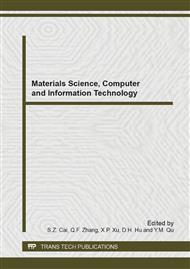p.2588
p.2593
p.2599
p.2605
p.2609
p.2613
p.2617
p.2621
p.2625
A Hybrid 2-Population Genetic Algorithm for the Job Shop Scheduling Problem
Abstract:
In this paper, an analysis of a hybrid two-population genetic algorithm (H2PGA) for the job shop scheduling problem is presented. H2PGA is composed of two populations that constitute of similar fit chromosomes. These two branches implement genetic operation separately using different evolutionary strategy and exchange excellent chromosomes using migration strategy which is acquired by experiments. Improved adaptive genetic algorithm (IAGA) and simulated annealing genetic algorithm (SAGA) are applied in two branches respectively. By integrating the advantages of two techniques, this algorithm has comparatively solved the two major problems with genetic algorithm which are low convergence velocity and potentially to be plunged into local optimum. Experimental results show that the H2PGA outperforms the other three methods for it has higher convergence velocity and higher efficiency.
Info:
Periodical:
Pages:
2609-2612
Citation:
Online since:
July 2014
Authors:
Keywords:
Price:
Сopyright:
© 2014 Trans Tech Publications Ltd. All Rights Reserved
Share:
Citation:


